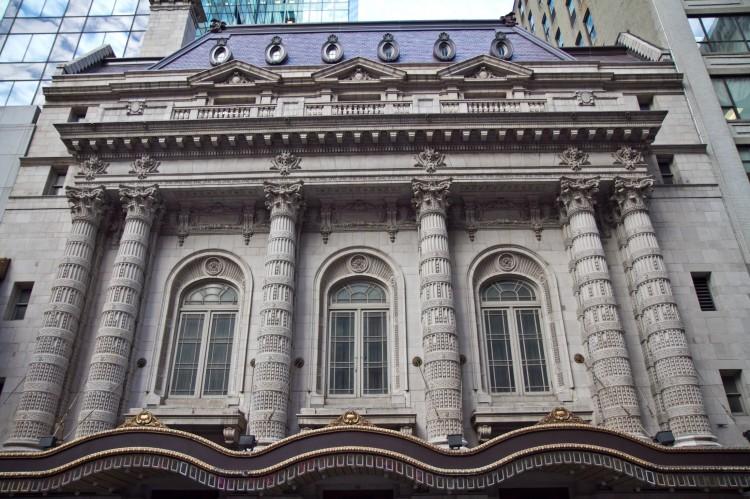Lyceum Theatre
Built: 1903
Architects: Herts and Tallant
NEW YORK— Broadway’s oldest continuously operating legitimate theater, the Lyceum, is also the first Broadway theater designated a landmark.
The Beaux-Arts style, which drew from Imperial Roman architecture as well as the Italian Renaissance and ancient Greek styles, was utilized in the form of six Corinthian columns in front of a gray limestone facade.
Architects Henry Herts and Hugh Tallant studied in Paris, and also designed other New York theaters, including the New Amsterdam and the Folies Bergere.
“With its rich array of architectural details, the theater is visually dramatic and recalls an exciting era in American theatrical history and of the theatrical world at the turn of the century,” states a 1974 Landmarks Preservation Commission document.







